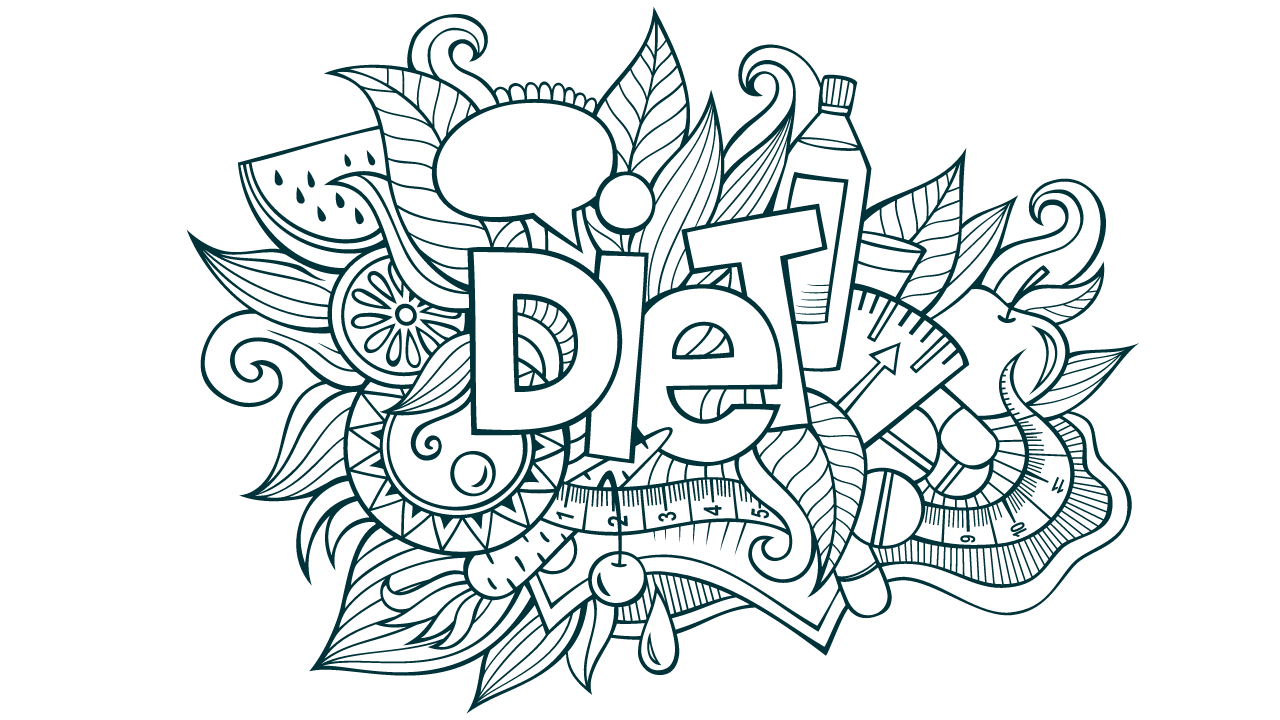Non-Diet What it Means and Why You Need to Know

I talk about diet culture and Non-Diet approaches a lot. I’ve even got a programme that uses Non-Diet in its title, so what does it mean and why do you need to know?
To explain Non-Diet, I think we first need to explain diet culture. Diet culture has many definitions, but essentially, it is a system that equates thinness with health, food and thinness with moral virtue and upholds the belief that appearance and body shape are more important that physical and mental health.
Sadly, it's also a dominant culture here in the UK.
Diet culture exists everywhere. Food, drinks, media, clothing, medicine, wellbeing, education, the list goes on.
Weight Normative
We live in a society that assumes that being overweight is a cause of ill health. This is known as the ‘weight normative' approach and this way of thinking is dominant throughout the medical system and nutritional sciences.
This assumption suggests that being overweight or obese is cause of ill health rather than it being an independent factor that may or may not influence health alongside many other variables.
This, along with numerous other factors (don’t get me started on the patriarchy) allows diet culture to thrive. Weight loss diets are often prescribed to patients in bigger bodies regardless of their physical health, and people in larger bodies, particularly larger women are often discriminated against.
In short, fatness is a problem and diet culture is the solution.
This is a big problem for many reasons, but in my line of work, it’s a problem because diet culture is heavily targeted at women and women become fixated on thinness at the expense of their health.
A woman who took part in one of my recent reset challenges said that she had recently been stumped by a question from a nutritionist asking her why she wanted to be thin over being healthy.
Sadly, diet culture tricks women into choosing foods that are less nutritious, teaches them food habits that work against their metabolism, makes them think that spending £18.95 a month for ten years of their lives on WW (do the maths) is better value for money than spending £600 for six months with a nutritionist - all of which keeps them circling back.
A Non-Diet Approach
Having been a victim of diet culture myself, I place myself firmly in the Non-Diet field.
‘Non-Diet’ also as many definitions. I define Non-Diet as an umbrella term for evidence-based practices that help you to improve your health without focusing on weight loss as an outcome. It includes things like nutrition, movement, mindfulness, stress management and sleep.
There are two defining differences here:
1 Encouraging you to focus on health (physical and mental) rather than pursuing thinness.
2. Evidence-based. There is very little evidence supporting the efficacy of restrictive diets in long term weightloss.
As such, I don’t support the counting of calories, points, carbs or grams of fat. Neither will you ever find me prescribing a juice cleanse.
In my experience (talking personally and that of working with may women inside my programmes) when you focus on evidence-based nutrition, emotional regulation and stress management techniques, most individuals enjoy many benefits including better energy levels, improved mood, normalise blood sugar patterns and very often find it easier to manage their weight naturally in a far safer and enjoyable way.
Fid out more about The Non-Diet Method here.

